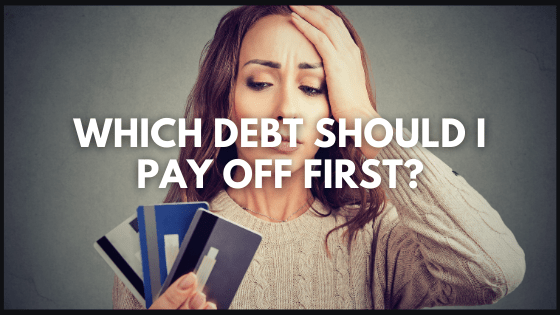If you’re dealing with a lot of debt, it can be hard to know how to start tackling it. While it’s generally recommended to first pay down your high interest debt, the right strategy for you can depend on your situation.
Regardless of which approach you take with your debt, the most important thing you can do to become debt-free is to create a plan and follow through with it.
Should You Pay Off Installment Loans or Revolving Credit First?
Debt is usually broken down into two groups: installment loans and revolving credit. Here’s how each works:
- Installment loans: Installment credit comes in the form of loans that have equal monthly payments—often called installments—over a set repayment period. For example, when you get a 30-year mortgage loan, you get a lump sum to cover the cost of the sale, then the loan is paid off over that time. So you know exactly what you’re going to pay every month and when the loan will be paid in full.
- Revolving credit: The alternative to a lump-sum loan amount, revolving credit accounts give you a line of credit that you can draw on, pay off and use again. Credit cards and lines of credit are considered revolving credit. Lines of credit typically have a draw period, followed by a repayment period, similar to an installment loan. With credit cards, however, there’s no set repayment period and your monthly payment is based on a percentage of your balance.
The decision of which type of debt to pay off first depends on a few things, so it’s important to understand the full extent of your situation.
Interest Rates
Again, the general recommendation is to focus on the debts with the highest interest rates. In many cases, that’s going to be credit cards. But for the most part, credit card interest rates max out at roughly 30%, and some traditional personal loans go as high as 36%.
If you have a personal loan for bad credit, payday loan, auto title loan or something similar, your annual percentage rate (APR) can be in the triple digits. So, take stock of all of your debts and how much they’re costing you to decide which one to tackle first.
Loan Terms
The urgency of your debt situation is another important factor to consider. For example, if you have five years left on your auto loan, you won’t run into any problems if you just continue making the regular monthly payment for now while you focus on other debts.
But if you have a payday loan, auto title loan or short-term personal loan, a delayed payoff could have drastic consequences, including damage to your credit score and more debt. In fact, the Consumer Financial Protection Bureau found that 80% of payday loans are rolled over into a new loan (re-borrowed) within a month, and nearly a quarter are rolled over at least nine times.
With auto title loans, not paying back the debt on time can result in the lender repossessing your vehicle. So if you have these types of loans, focus all of your efforts on paying them off as soon as possible so you’re not out of a way to get to work.
Your Spending Habits
If you’ve racked up a lot of credit card debt or mobile loans debt through overspending, the longer you keep those accounts open, the higher the chances are that you’ll continue racking up balances. In this scenario, it may be better to pay down your credit cards quickly and then close the accounts, even if you have a personal loan with a slightly higher interest rate.
